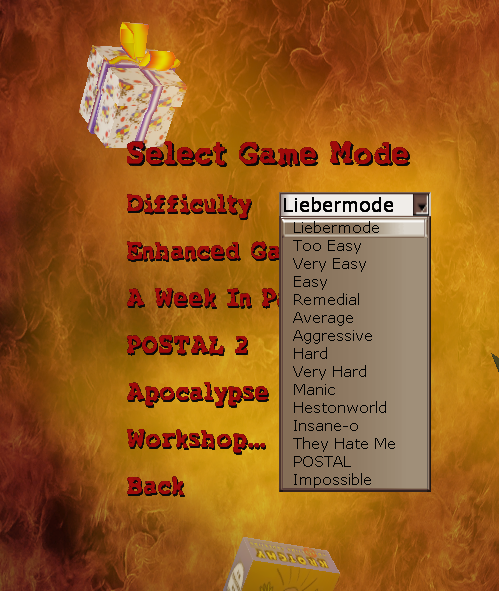
- #Postal 2 apocalypse weekend end credits song movie
- #Postal 2 apocalypse weekend end credits song series
On the flip-side, the show’s insistence on breaking away from the overarching narrative of the games means that veterans are going to come away from this feeling crestfallen and, frankly, confused. The callbacks to iconic moments from the games are certainly cool for veterans, but accomplish little more than muddy the waters for newcomers to the franchise. In trying to please both newcomers and longtime fans, it just doesn’t stick the landing at all. Ultimately, Netflix’s Resident Evil is yet another misfire in the world of live-action adaptations. His presence, given the apparent link to the games’ canon, is confusing at first, but the explanation provided around the halfway point did just about enough to convince us of its validity, even if it is a bit corny. Just when you start to get on his side and root for him, he flips and showcases an intensity that could only be reserved for Resident Evil’s most iconic villain. On the flip side, we have to give credit to Lance Reddick, who plays Albert Wesker wonderfully from start to finish. It’s all done rather well on a scene-by-scene basis, but since the show spends so much time on the teenage angst of its primary protagonists, these moments lose any potential impact and make for a weird juxtaposition against the overall tone of the series. It’s a shame, because there are some really cool moments and callbacks sprinkled throughout: Billie playing ‘Moonlight Sonata’ on the piano, a mercenary proclaiming himself to be the “Master of Unlocking”, video footage from 1998 showcasing the tragic figure of Lisa Trevor. Indeed, for much of its runtime, Resident Evil feels very much like a young-adult drama wrapped up in the visual style of Capcom’s classic franchise. We're talking about the flesh-eating ones. There’s enough here, in theory, to draw in newcomers while keeping long-time fans entertained, but unfortunately this Resident Evil squanders much of its potential and proves itself to be a convoluted mess that focuses too much on the family drama surrounding the Weskers and not enough on the franchise staple: the monsters.

The core premise here is admittedly quite cool, particularly if you mentally detach yourself from the narrative of the game franchise. Jade, separated from her sister Billie, tries desperately to find a cure for the virus and protect her daughter, Bea. In 2036, meanwhile, the world has fallen to the deadly T-Virus and monsters are roaming the land. Of course, the evil Umbrella Corporation - run by the delightfully creepy Evelyn Marcus - reigns supreme over the town and sure enough, chaos soon ensues and plunges Jade, Billie, and yes, even Albert, into stark danger. In 2022, Albert Wesker and his two daughters, Jade and Billie, arrive at New Raccoon City to start a new life.
#Postal 2 apocalypse weekend end credits song series
In a nutshell, the series takes place during two separate time periods: 20. It’s a commendable attempt to break away from the core narrative of the game series in a way that makes sense for newcomers ( mostly), but at the same time it tries desperately to please long-time fans of the franchise, ultimately failing to nail down its target audience.

Having now watched the entire series (in near enough one sitting - phew), we can now confirm that Resident Evil on Netflix isn’t quite the disaster that many were fearing it to be. Not only that, but initial details on the series set off alarm bells immediately: a series focusing on the daughters of Albert Wesker? What? It didn’t sound promising, particularly when show-runners would later promise that the series would tie in with the game series' canon.

When Netflix announced its own take on Resident Evil via an eight-episode series, fans were understandably sceptical that the streaming juggernaut could pull off what Anderson and Roberts failed to do.
#Postal 2 apocalypse weekend end credits song movie
Despite being significantly more faithful to the games, Johannes Roberts’ movie was criticised for its writing and attempts to cram as much fan-service into one movie as possible. Anderson’s six-movie take on the series - while commercially successful - was widely slated by fans of the games and critics alike for diverting too far away from the tone and scope of Capcom’s source (plus, some of them were just straight up bad), and the 2021 reboot, Resident Evil: Welcome to Raccoon City, didn’t fare much better. The live-action adaptations of the Resident Evil franchise have had a real rough time of it, huh? Paul W.S.


 0 kommentar(er)
0 kommentar(er)
